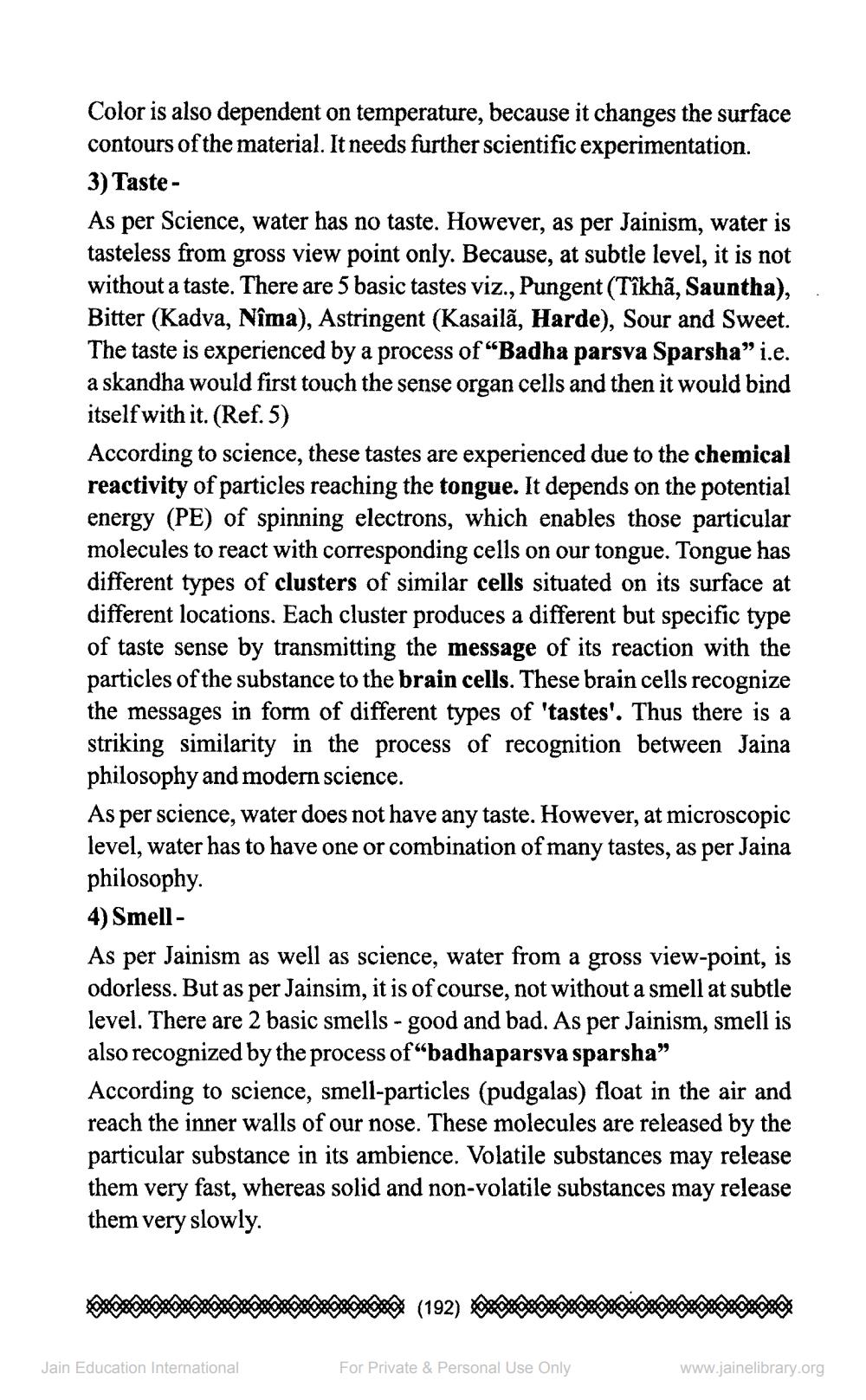________________
Color is also dependent on temperature, because it changes the surface contours of the material. It needs further scientific experimentation. 3) TasteAs per Science, water has no taste. However, as per Jainism, water is tasteless from gross view point only. Because, at subtle level, it is not without a taste. There are 5 basic tastes viz., Pungent (Tīkhã, Sauntha), Bitter (Kadva, Nîma), Astringent (Kasailã, Harde), Sour and Sweet. The taste is experienced by a process of “Badha parsva Sparsha” i.e. a skandha would first touch the sense organ cells and then it would bind itself with it. (Ref.5) According to science, these tastes are experienced due to the chemical reactivity of particles reaching the tongue. It depends on the potential energy (PE) of spinning electrons, which enables those particular molecules to react with corresponding cells on our tongue. Tongue has different types of clusters of similar cells situated on its surface at different locations. Each cluster produces a different but specific type of taste sense by transmitting the message of its reaction with the particles of the substance to the brain cells. These brain cells recognize the messages in form of different types of 'tastes'. Thus there is a striking similarity in the process of recognition between Jaina philosophy and modern science. As per science, water does not have any taste. However, at microscopic level, water has to have one or combination of many tastes, as per Jaina philosophy. 4) Smell - As per Jainism as well as science, water from a gross view-point, is odorless. But as per Jainsim, it is of course, not without a smell at subtle level. There are 2 basic smells - good and bad. As per Jainism, smell is also recognized by the process of “badhaparsva sparsha” According to science, smell-particles (pudgalas) float in the air and reach the inner walls of our nose. These molecules are released by the particular substance in its ambience. Volatile substances may release them very fast, whereas solid and non-volatile substances may release them very slowly.
Jain Education International
For Private & Personal Use Only
www.jainelibrary.org




